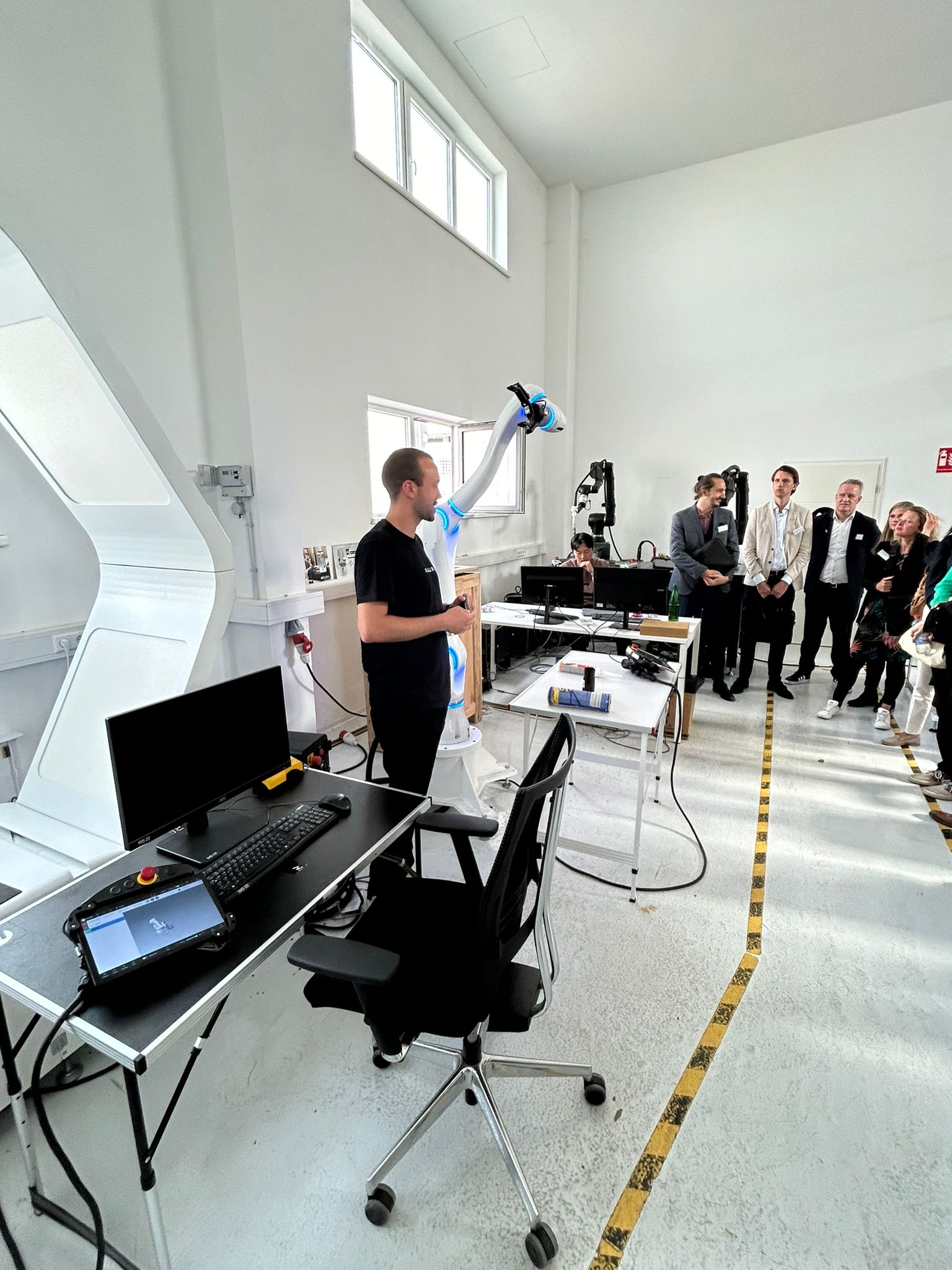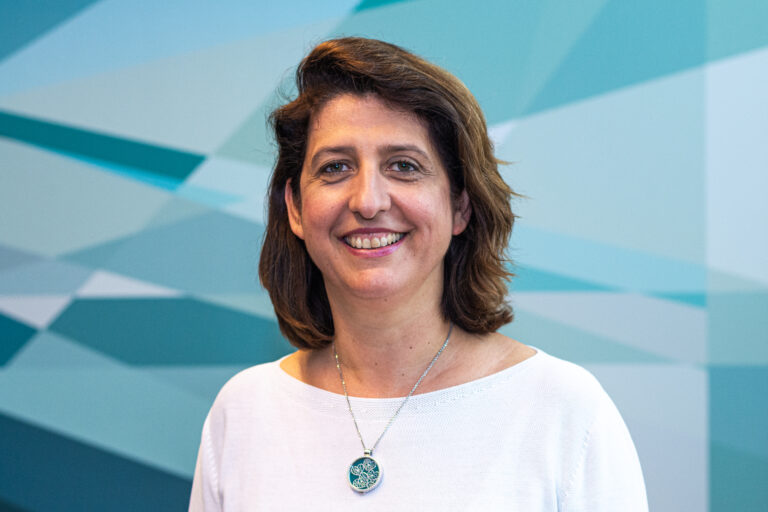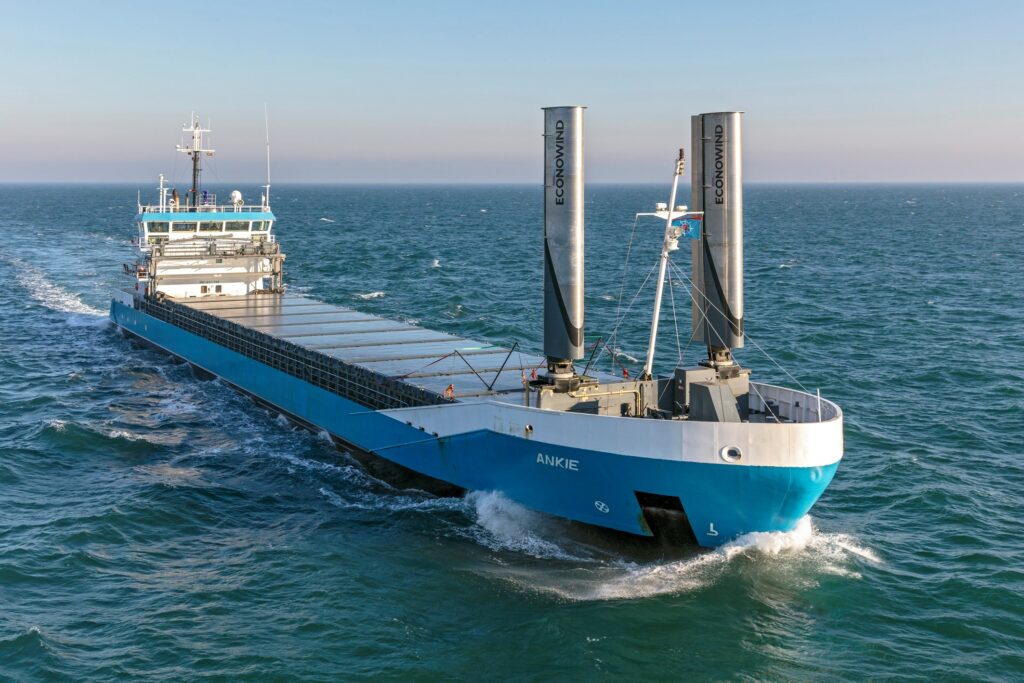Integrating this knowledge into an online AI tool will let the ELSA Lab help raise the level of knowledge about reliable human-centric AI and promote responsible development and implementation of health technology innovations (including AI) in the northern part of the country.
Knowledge will be mapped out using three concepts – availability, use and performance – that together cover the entire AIREA-NL research agenda. Availability covers the first two stages of AI development (creating AI components and AI systems), use is about the third stage of development (AI systems and humans), whereas performance addresses the fourth and final stage (the interaction between AI systems and society).
What social challenges in AI are being worked on?
The ELSA Lab wants to help promote healthy living, working and ageing by spreading the knowledge gained about the ELSA-related aspects and the ELSA tool. These are important social challenges, given the ever-‘greyer’ age profile of society, the growing shortage of care providers and rising levels of lifestyle-related chronic diseases. These challenges are particularly urgent in the north due to the challenging social demographics of the region. Specific attention is paid to the opportunities for groups with low socioeconomic status (SES) because health differences between high and low-SES groups are increasing worldwide, including in the northern part of the Netherlands.
What types of solutions are offered to the end user?
Delivering a practical online ELSA tool is the most important final result of this ELSA Lab. Lots of AI guidelines have been developed in recent years, but they mainly describe general ethical and legal principles. What is missing are practical tools relating to how these principles can be applied to the process of developing AI applications in real-world contexts. The tool to be developed will have this information about applying AI in the context of care.
What AI methods or techniques are used in the research?
In the Northern Netherlands ELSA Lab, we are investigating the use of AI in various decision-making contexts using four use cases. The four use cases (genetic data, monitoring data, personal health data and synthetic data) include forms of data and AI applications in a variety of contexts for healthy living, working and ageing. This is how we expect to generate a broad overview of the ELSA aspects.
Are we collaborating with other sectors?
The four quadruple helix partners (centres of expertise, public-private organisations, governmental authorities and resident/patient organisations) are involved in the ELSA Lab. The ELSA Lab is embedded in various existing initiatives in the north of the country, such as the Data Science Center in Health (DASH), the Health Technology Research and Innovation Cluster (HTRIC) and the Northern Netherlands AI Hub, which is important for widely sharing the knowledge developed in the ELSA Lab, including the ELSA AI tool and the lab’s permanent status. Additionally, we are collaborating with partners abroad who are also involved in the responsible development and implementation of AI and who have a lot of knowledge and experience of getting disadvantaged groups involved. Finally, the ELSA Lab is working together with other ELSA Labs that have been awarded an NL AIC Label by the Netherlands AI Coalition.
What is the ultimate success this ELSA Lab can achieve?
The Northern Netherlands ELSA Lab is aiming to become a key player in developing knowledge about responsible development and implementation of AI in healthcare, and making that knowledge available. Additionally, the ELSA Lab wants to become the regional centre of expertise for ELSA-related issues and to promote health technology and AI development in the north of the country by sharing that knowledge.
 Awarded the NL AIC Label
Awarded the NL AIC Label
The Netherlands AI Coalition has developed the NL AIC Label to underline its vision for the development and application of AI in the Netherlands. An NL AIC Label formally recognises an activity that is in line with the aims and strategic goals of the NL AIC and/or the quality of that activity. The NL AIC would like to congratulate the Northern Netherlands ELSA Lab.
Awarding ELSA Lab funding
The Netherlands Organisation for Scientific Research (NWO) and the Netherlands AI Coalition launched the NWA call for ‘Human-centric AI for an inclusive society: Towards an ecosystem of trust’. After testing by an independent NWO evaluation committee, five projects were approved at the end of January 2022, including this ELSA Lab. The NL AIC would like to congratulate all the parties involved in obtaining this funding and wishes them every success in the further development of the Lab.
More information?
The overview shows the parties involved in the consortium. If you’re interested in this ELSA Lab, please visit the website of contact Mirjam Plantinga. If you would like more information about human-centric AI and the ELSA concept, please go to this page.
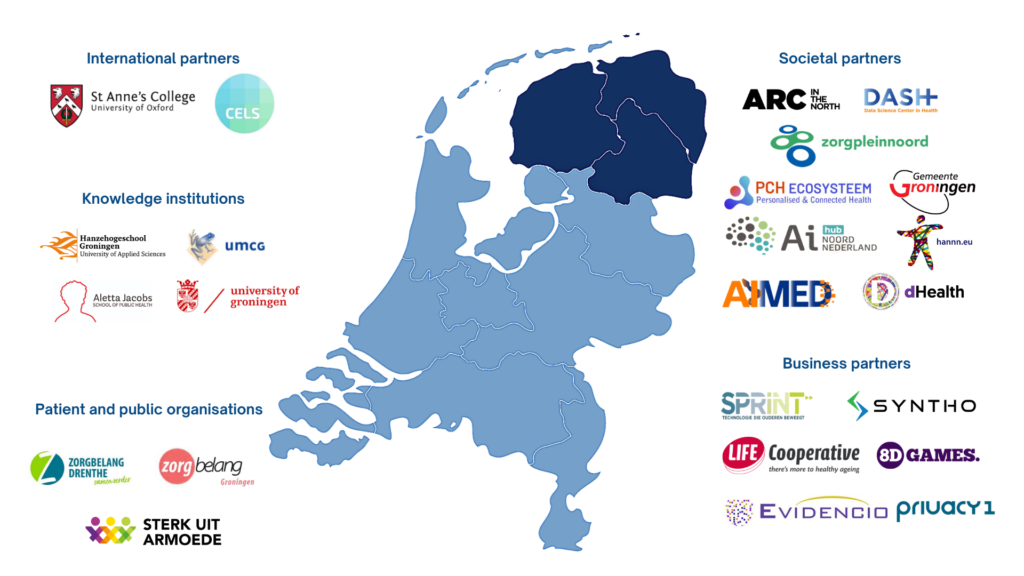

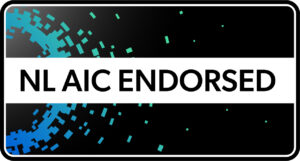 Awarded the NL AIC Label
Awarded the NL AIC Label